Meet Oluwole Omofemi and Bayo Akande, the founders creating a new art community
Oluwole Omofemi and Bayo Akande, are behind Piece Unique, an artist agency that guides and future-proofs emerging artists’ careers
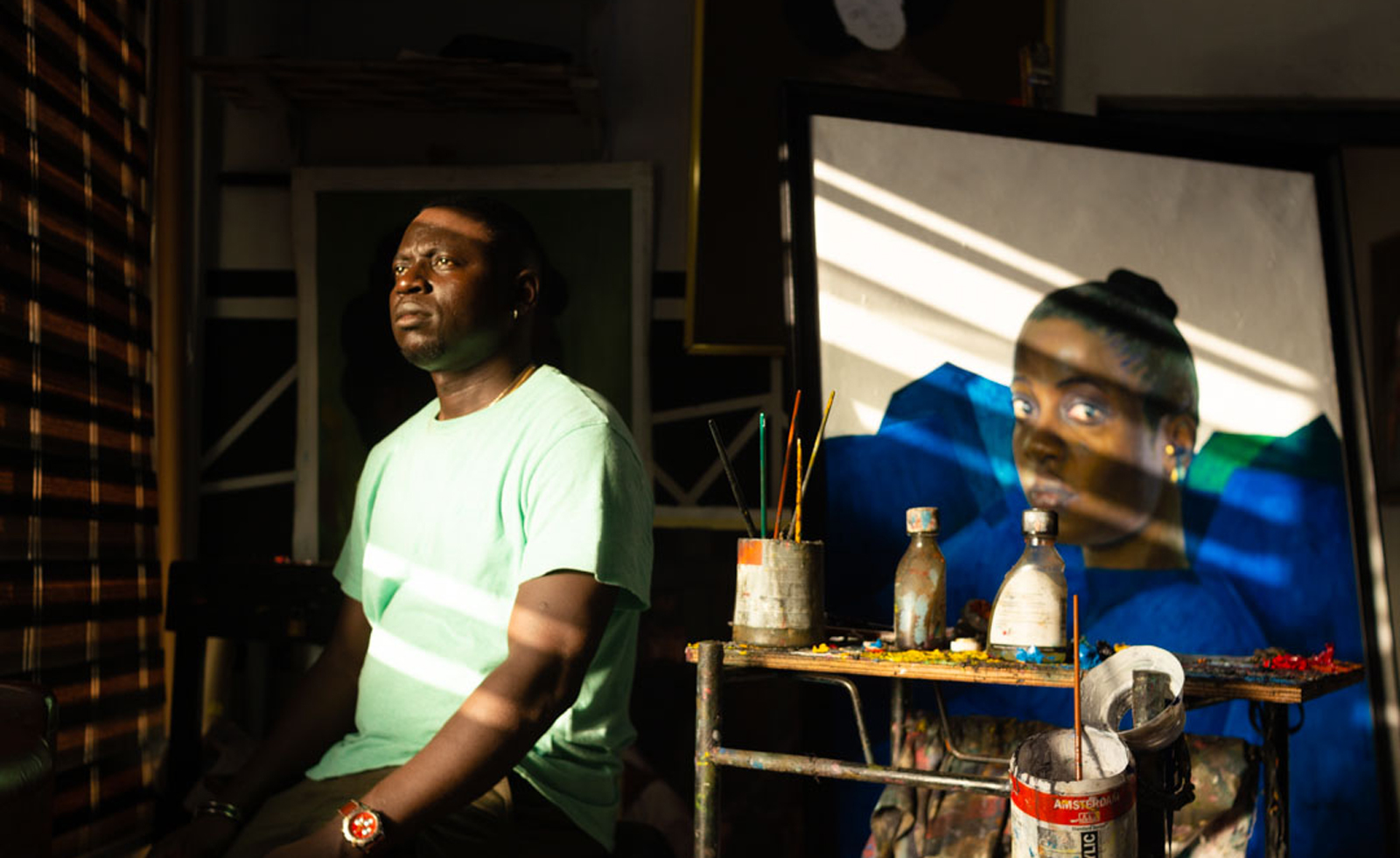
‘Since we started Piece Unique, the idea has always been to give back to the art world and especially African artists,’ shares Nigerian artist Oluwole Omofemi, who together with Bayo Akande has created an artist agency that centres its activities on guiding, capacity building, selling and future-proofing emerging artists’ careers.
‘The thing about me is I can’t see a gap and not plug it,’ adds Akande, whose entrepreneurial career coupled with his enviable private art collection positions him as a perfect business- and aesthetically minded foil to Omofemi’s creative ambitions. A successful debut London art exhibition, ‘Contact Zone’ held at Cromwell Place, is being followed up by ‘Contact Zone II’, a special project debuting at 1:54 London, featuring work by Omofemi alongside Blebo, Boris Anje and Elfreda Dali that has been created in Piece Unique’s Artist Residency in Ibadan, Nigeria.
Omofemi is best known for painting the last commissioned portrait of Queen Elizabeth II, and his successful career has included shows in New York, Paris, Barcelona and Los Angeles. However, notions of home, identity and how it informs one’s practice have never been far from view and he chose to explore them in the residency’s design.
‘One of the things that has actually made my journey more interesting is I have lived all my life in Ibadan and I get the inspiration from Ibadan. When I tell people that this is where I live, they find it difficult to believe. I remember the first time I went to London for an exhibition, the first question I was asked was, “Are you from Lagos?” and I would keep asking “Why?”’
Presenting the case for Ibadan, he adds, ‘In the 1970s and 80s, when you talk about the masters like Lamide Fakeye, or Wole Soyinka, some of the notable people out there today, they all went to the University of Ibadan. The impact of the university, you can’t underestimate that. I believed that bringing artists from outside Nigeria here, for instance, would shape them and give them a different perspective.’
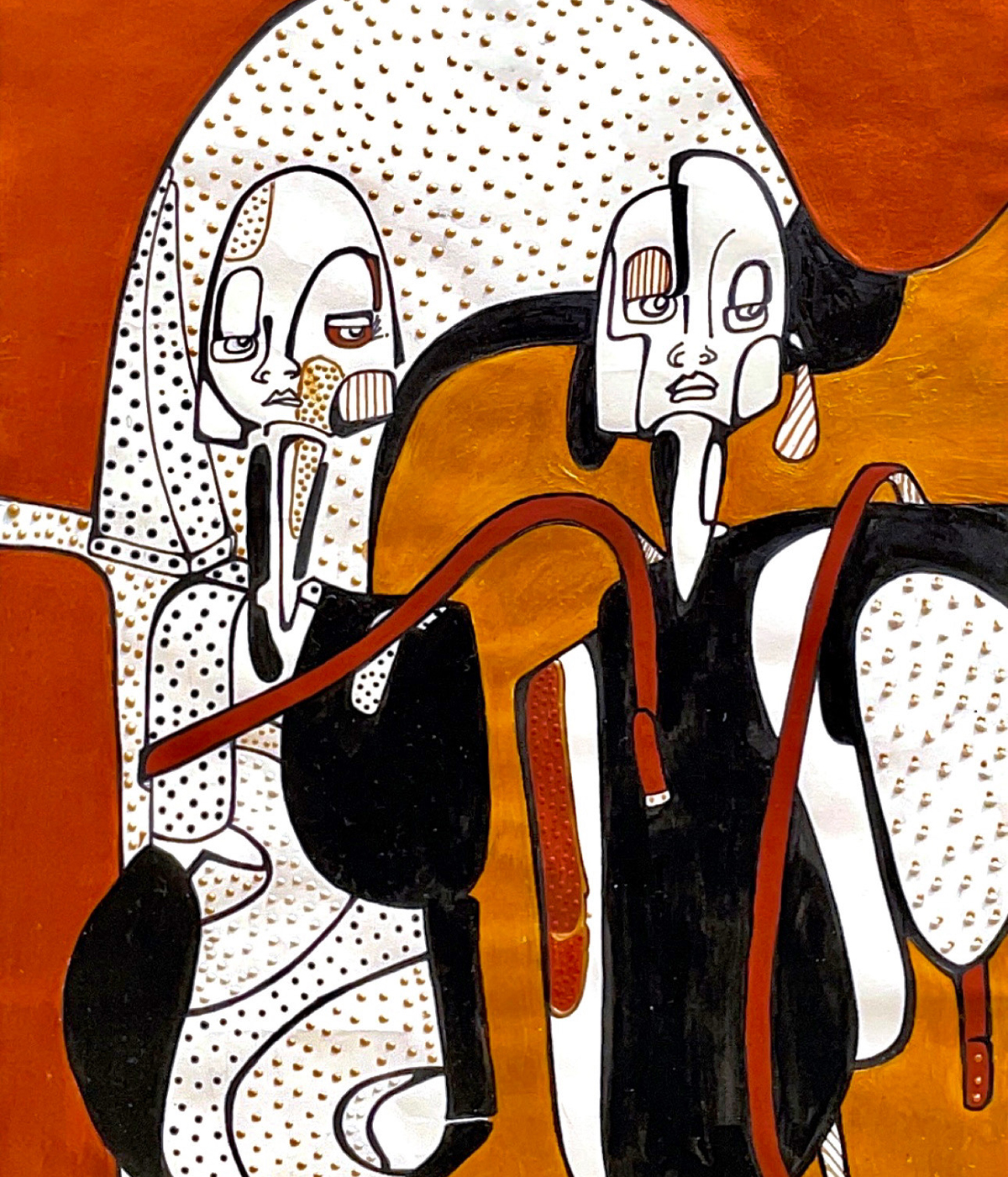
Work by Elfreda Dali
For Ghanaian painter and sculptor Blebo, the Ibadan residency offered an opportunity to expand on enduring themes of his practice as a painter and sculptor, centred on sustainability, art-making processes, and architecture in a different location. ‘What brought me to this community or family is the beautiful thing we are doing here.’ Of Ibadan he adds: ‘One of the things that drew my attention was the bronze or brown roofs. It was an inspiration for me, and one of my pieces has the bronze roofing. For me, I call it bronze because it is wealth. So, for me that was the point of entry. But also, the people; since we came, we have been commuting – every morning I see new faces, new bike riders – so I decided to have an interaction with these bike riders and in the piece Eleyele to Dugbe, I depict their expressions and that emotion and the communications we have had, in about 30 heads and 30 facial expressions.
Boris Anje, the Cameroonian artist whose work has been described as being at the vanguard of the Neo-Pop Art movement, says, ‘everything started with Omofemi, because we happened to be represented by the same gallery in Barcelona. I said yes to the residency because of the way he resonates with my work and the interest he has in what I do as an artist.’
Receive our daily digest of inspiration, escapism and design stories from around the world direct to your inbox.
The central premise of the residency correlated with themes in Anje’s practice. ‘In much of my work, I talk about where people meet on a daily basis. I address issues of identity. I portray the way we like to see ourselves, the image we love to have. I attach so much value to humans because in our society today we have this tendency of not putting humans in the place they deserve to be. So, in my works, I want to put humans at the centre of our discussions. Being here in Ibadan has really moved me. And the piece I am making is about that bonding.’
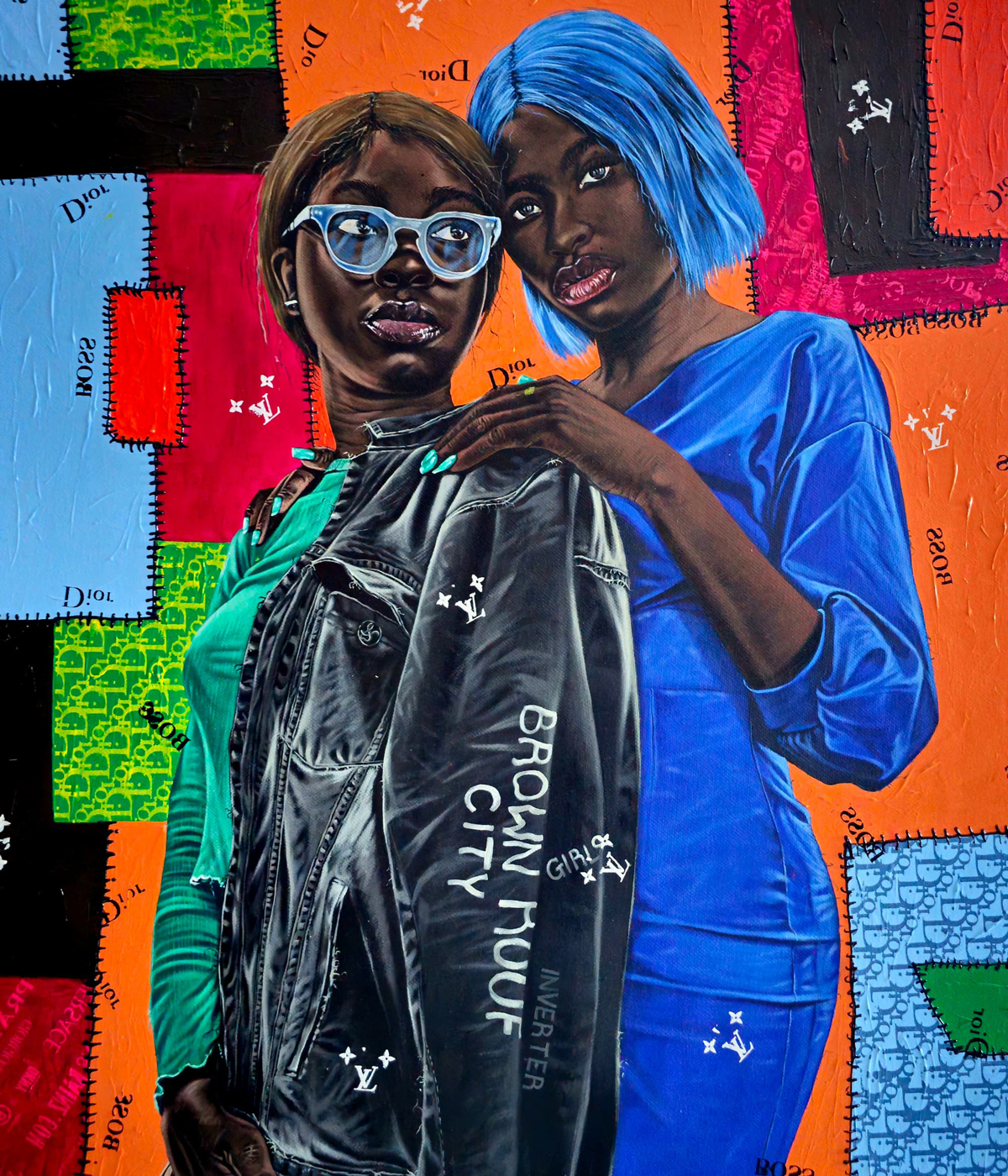
Ifeni by Boris Anje
‘I never thought I was going to be an artist,' says Elfreda Dali, who trained and worked as a fashion designer before developing her fine art practice during the pandemic. For Dali, the special project afforded her space to explore intersectional themes from her prior fashion and current fine art practice. ‘Sustainability and craftsmanship have always been at the core of my practice and repurposing waste is still a huge part of my process.’
Of her figurative art using textiles, clothing and wood, she explains, ‘the clothing we wear is part of universal and cultural language and in my works, the clothing that you see on the subjects has its own message. I put these map shapes, which mirror a topographical effect that you will see across all of my work, especially when you look at it from a distance. It’s a way of addressing my diasporic identity, being born and raised to Nigerian parents living in London, and the idea of blending those two cultures in everything.’
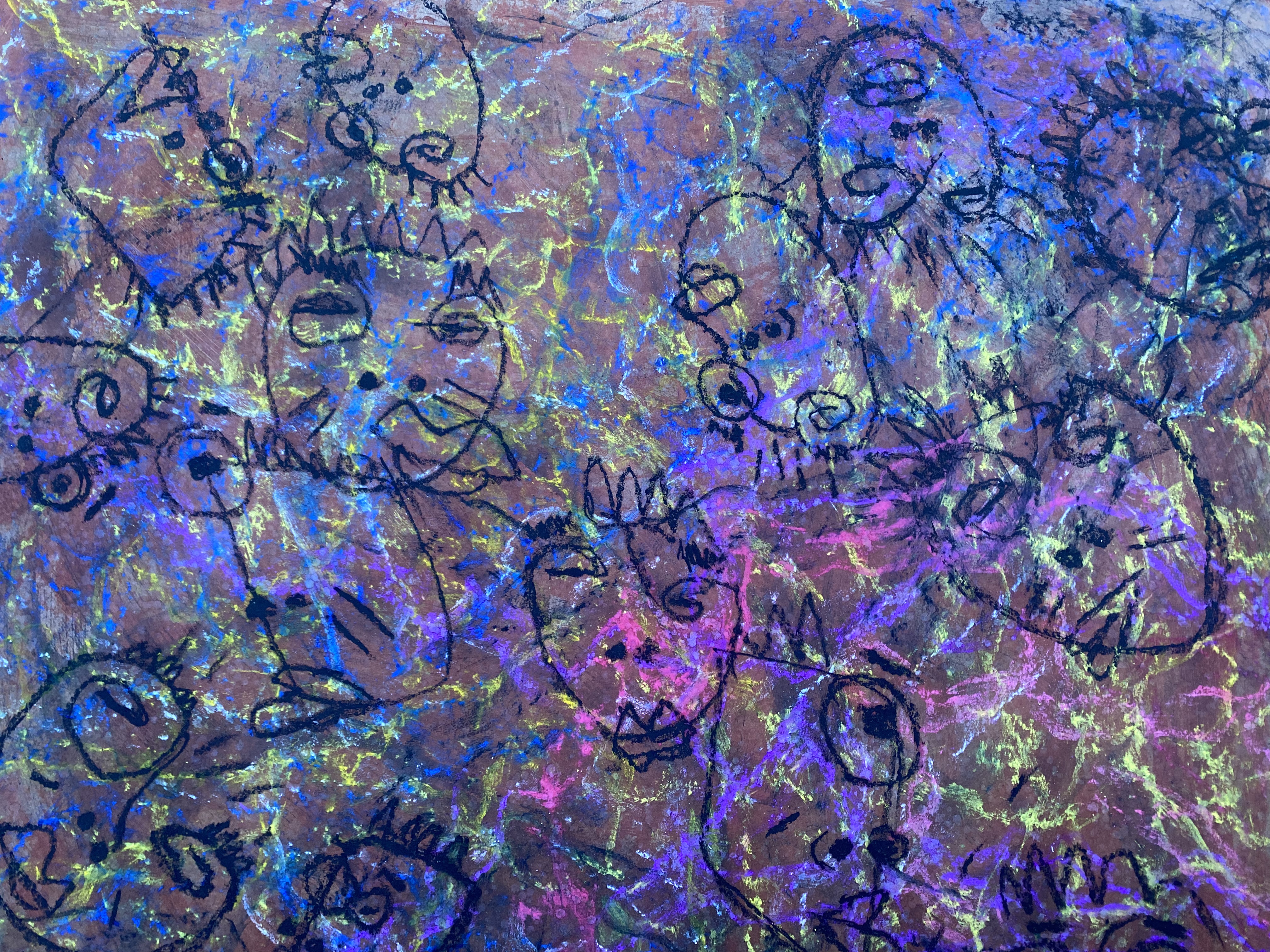
Eleyele to Dugbe I by Blebo
At the heart of the ‘Contact Zone II’ is a desire to empower creative communities, whether on the micro level of the artists at the residency or the global stage of an art fair. Omofemi, could have just as easily showed on his own, but in the special project aims ‘to create a contrast between what I do and what other artists do’.
For Akande, 1:54 London is a natural setting for his skill as a cultural conduit; he sees considered disruption as an essential element for progress in the contemporary African Art landscape. He expands, ‘How else can we move away from the orthodox, generic approach? We know the art market is very elitist. And thinking back to when I was younger, how can younger people get into art?’
Answering these questions has resulted in a limited edition of wearable artworks that will launch officially at the fair. It is yet another example of Piece Unique’s commitment to creating varied forms of engagement but with an unchanging mandate of widening vistas and opportunities.
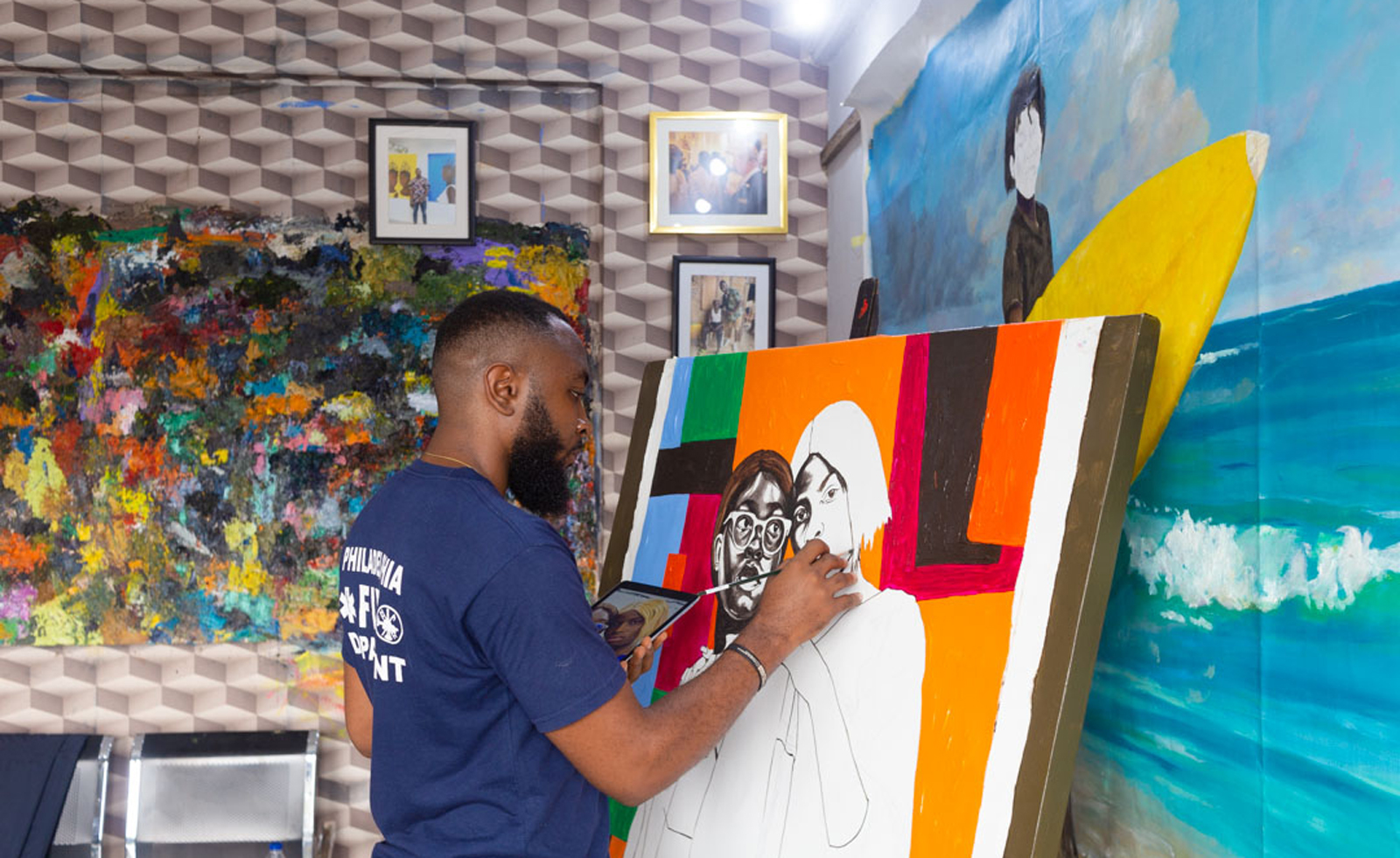
Boris Anje with his work
Mazzi Odu is a Ugandan-British writer, editor and cultural consultant based in Lagos, Nigeria. Her work focuses on jewellery, design, fashion and art. An alumna of the London School of Economics and Political Science, she has profiled a cross section of leading design talents and creative voices, with a special emphasis on those from the Global South and its Diaspora communities.
-
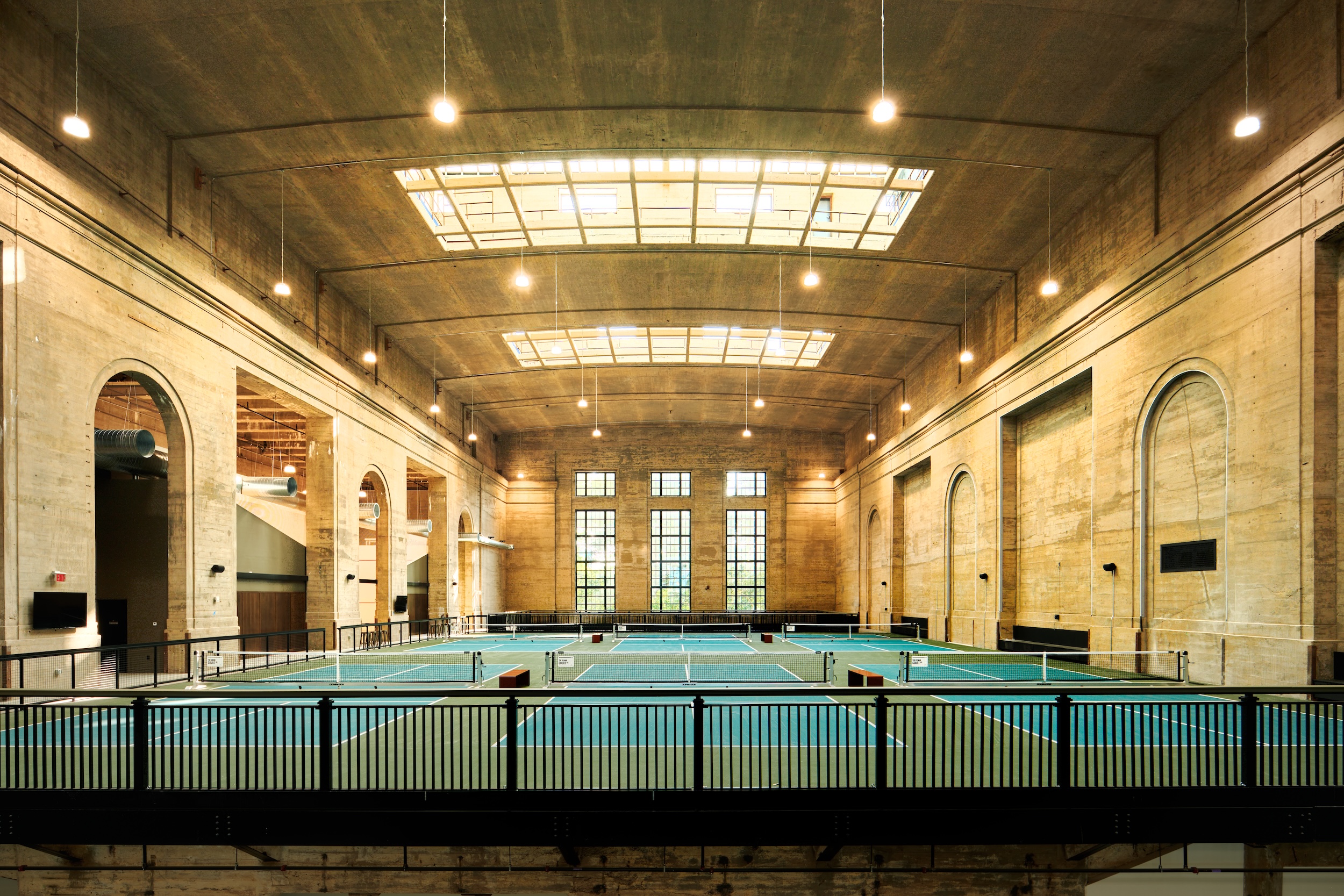 This Andre Agassi-backed sports club in Philadelphia might be the most stylish athletic facility we've ever seen
This Andre Agassi-backed sports club in Philadelphia might be the most stylish athletic facility we've ever seenAt Ballers in Philadelphia, you can play tennis, take a dip and have dinner beneath one soaring roof. Here's a look inside
-
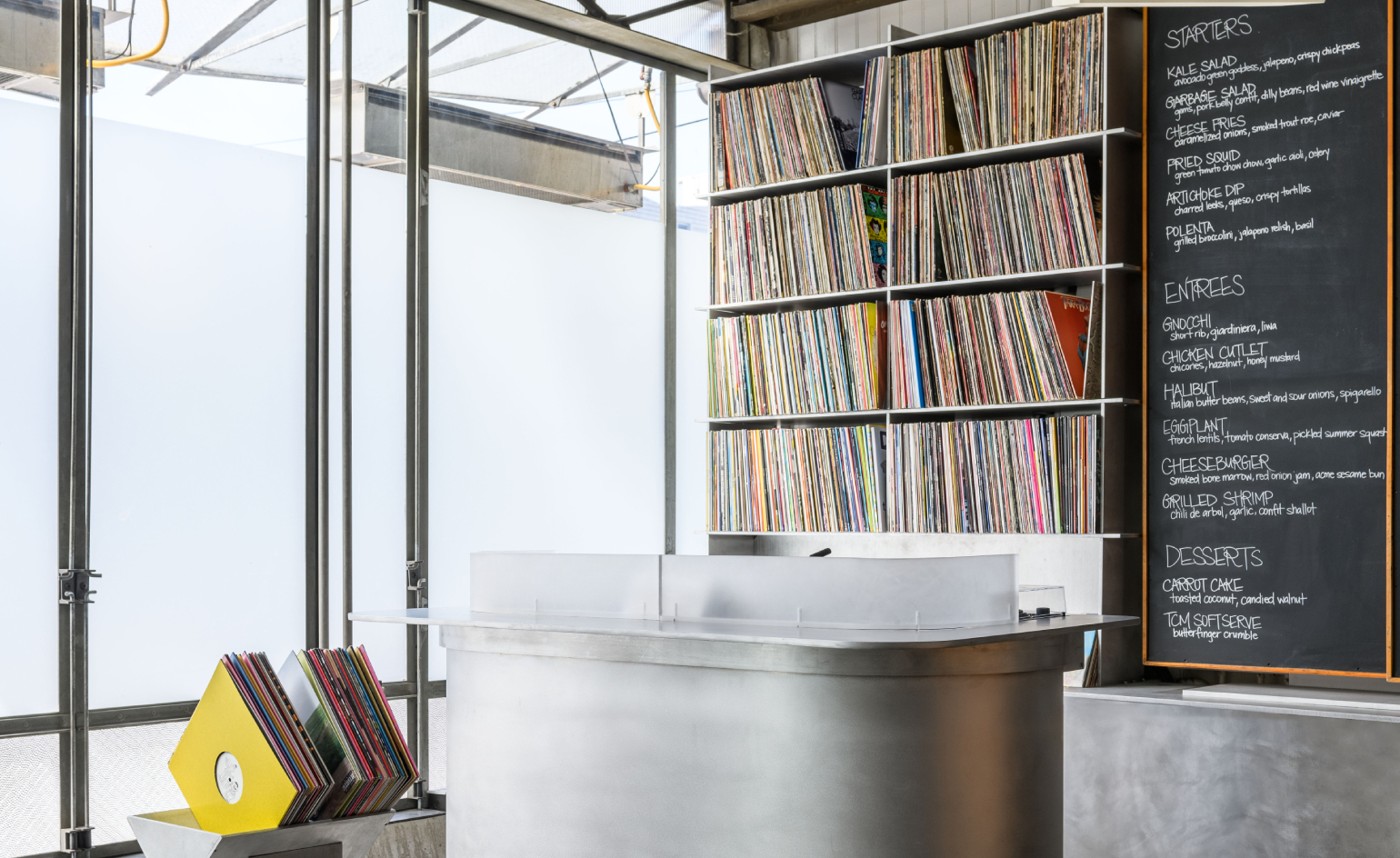 The best dinner party in San Francisco is thrown at this bistro and vinyl bar
The best dinner party in San Francisco is thrown at this bistro and vinyl barA new chapter begins in Mission Creek as Side A opens in the former Universal Café space
-
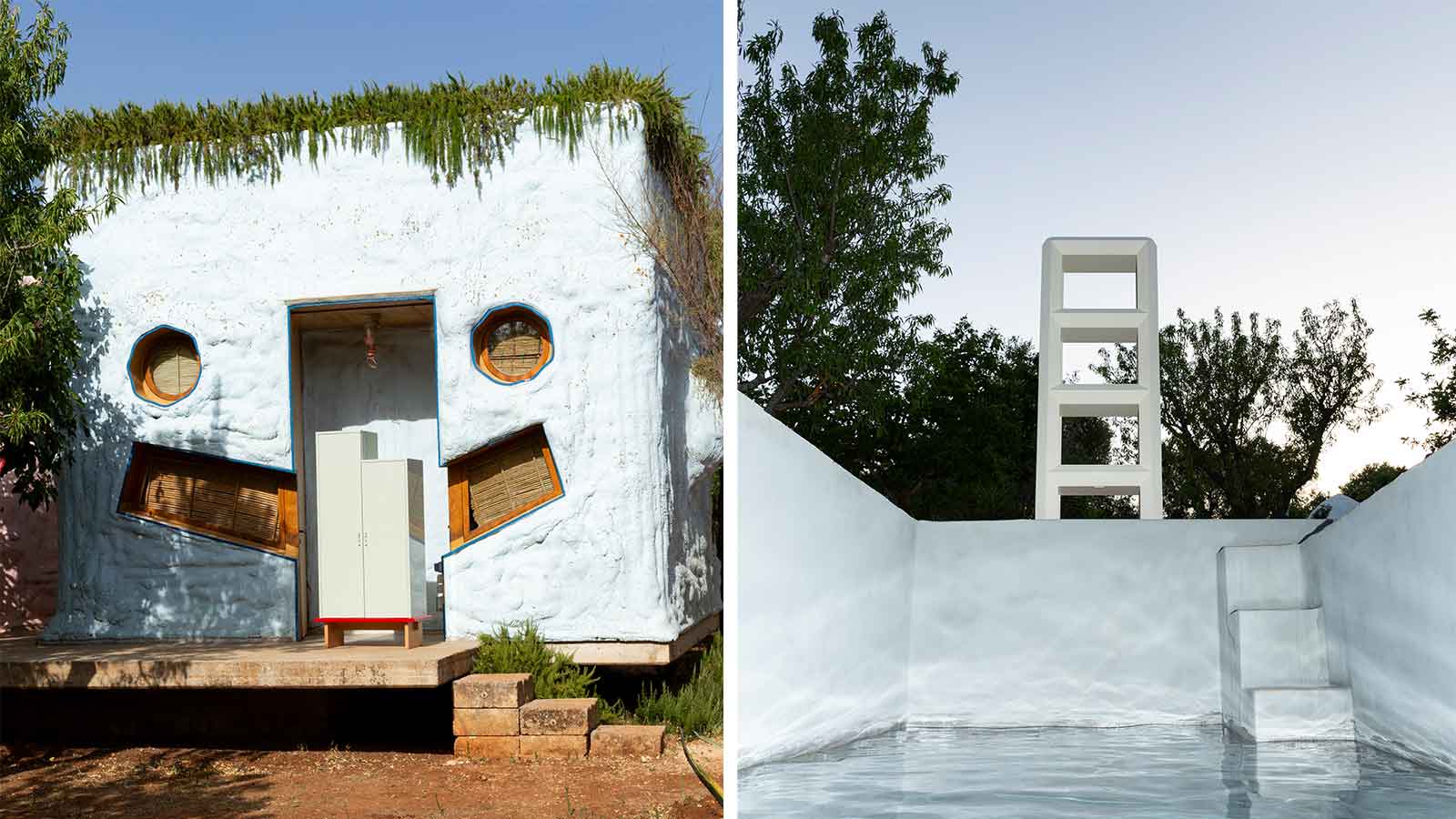 Gaetano Pesce’s quirky trullo becomes the backdrop to playful furniture by Vero
Gaetano Pesce’s quirky trullo becomes the backdrop to playful furniture by VeroA new series of photographs celebrates Vero’s latest furniture, shot at Gaetano Pesce’s ‘Pescetrullo’, the architect and designer’s distinctive take on a traditional Apulian house
-
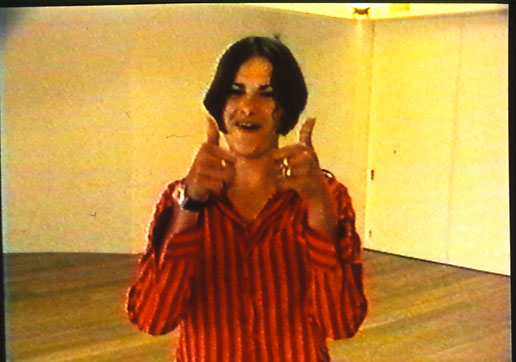 Five of the biggest art exhibitions to see in London in 2026
Five of the biggest art exhibitions to see in London in 2026From Marilyn Monroe, to David Hockney and Tracey Emin – get these art exhibitions in your diary now
-
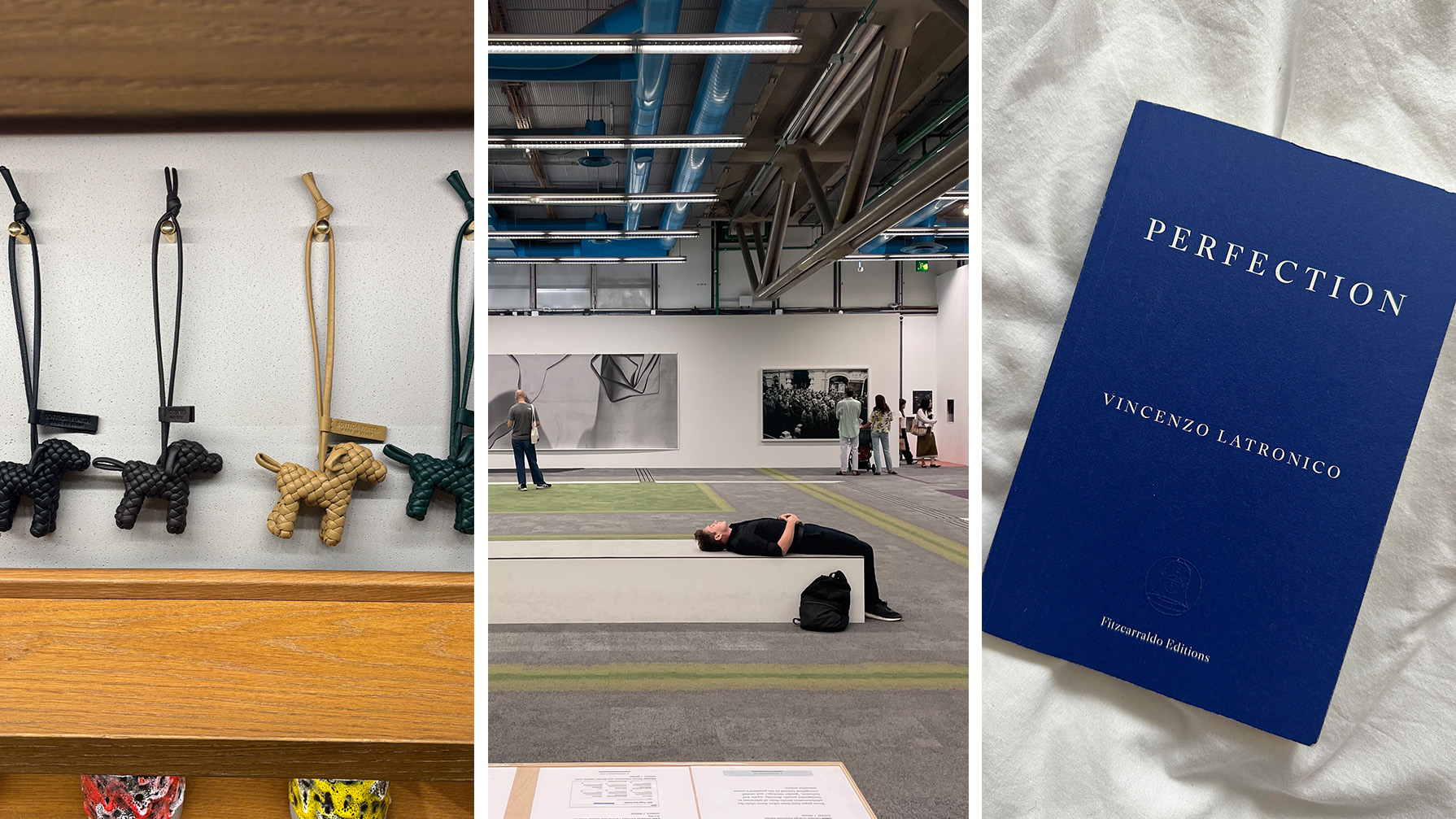 Out of office: the Wallpaper* editors’ picks of the week
Out of office: the Wallpaper* editors’ picks of the weekWith the return of back-to-school, it's back to business for the Wallpaper* team, who’ve been making the rounds at fashion pop-ups and pavilion launches. Elsewhere, we’ve been indulging in new literature and old restaurants, and taking in a farewell exhibition at a landmark gallery...
-
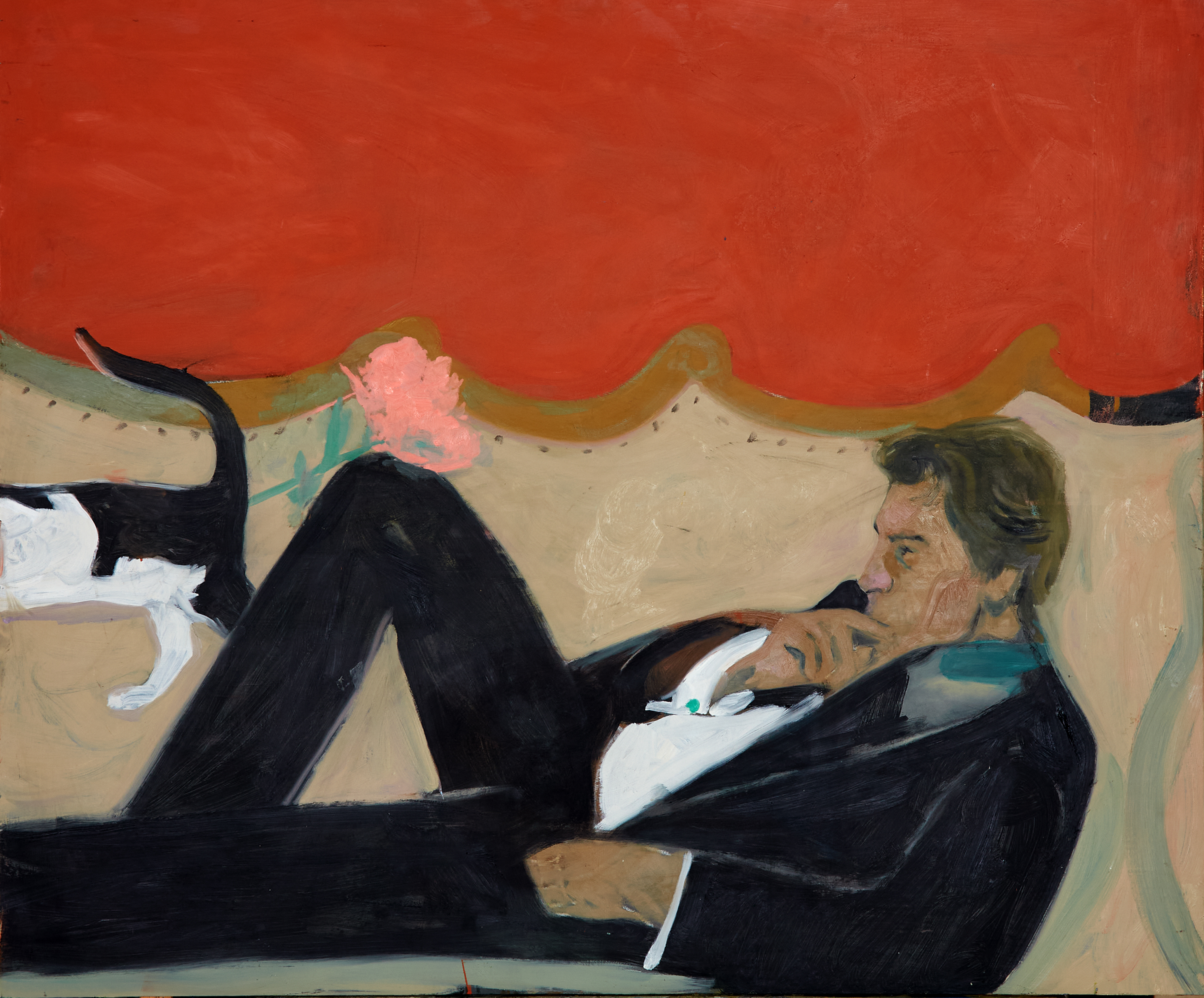 From art to fashion, and back again: Jonathan Schofield’s figurative work is back in style
From art to fashion, and back again: Jonathan Schofield’s figurative work is back in styleAfter graduating from London’s Royal College of Art, Jonathan Schofield began a career as a creative director at Stella McCartney. Now, he has returned to his first love, painting
-
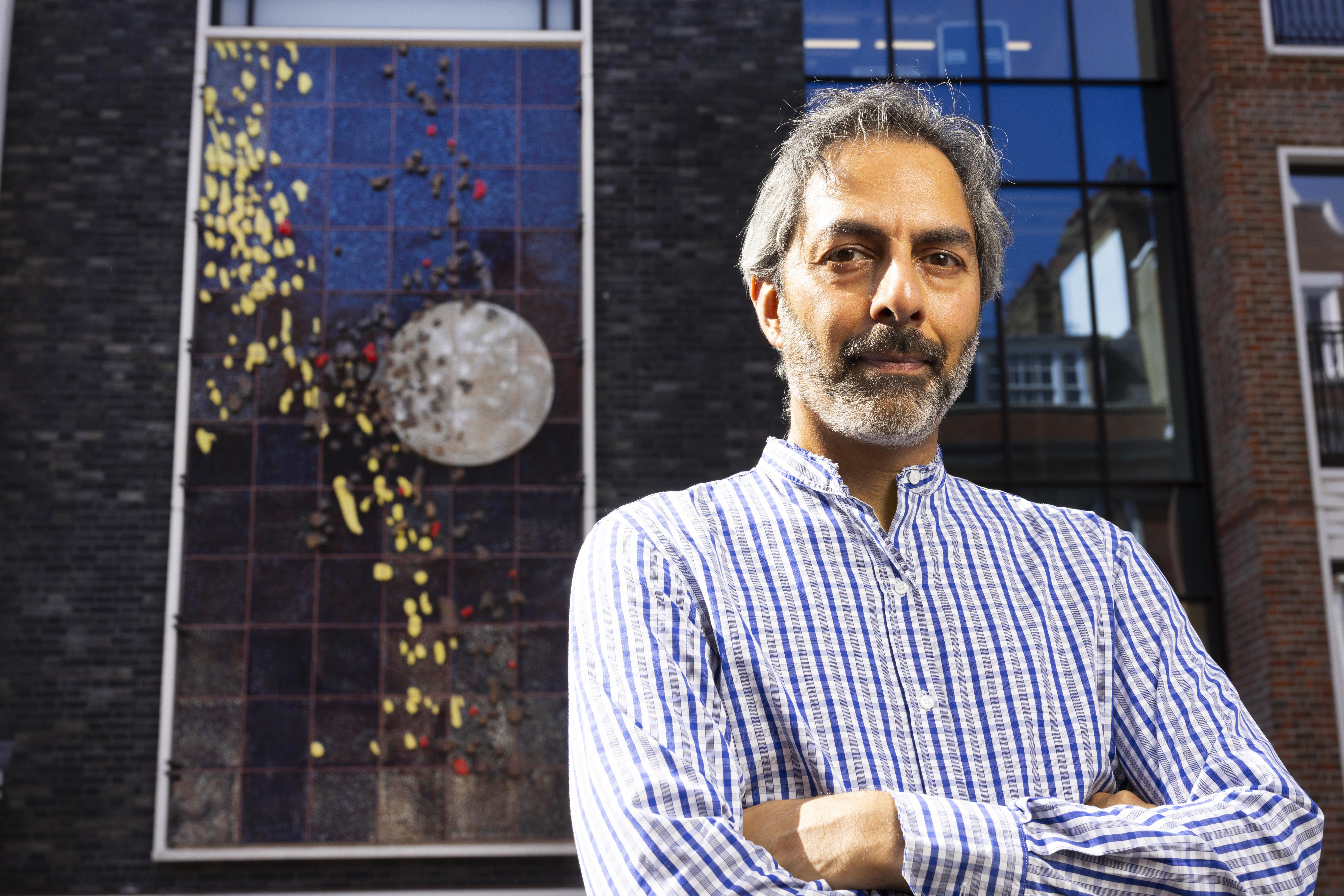 Watch: artist Shezad Dawood lights up The Gaumont, King’s Road’s creatively focused new hub
Watch: artist Shezad Dawood lights up The Gaumont, King’s Road’s creatively focused new hubIn our short film, meet the artist, see his new work in the making, and discover more about The Gaumont
-
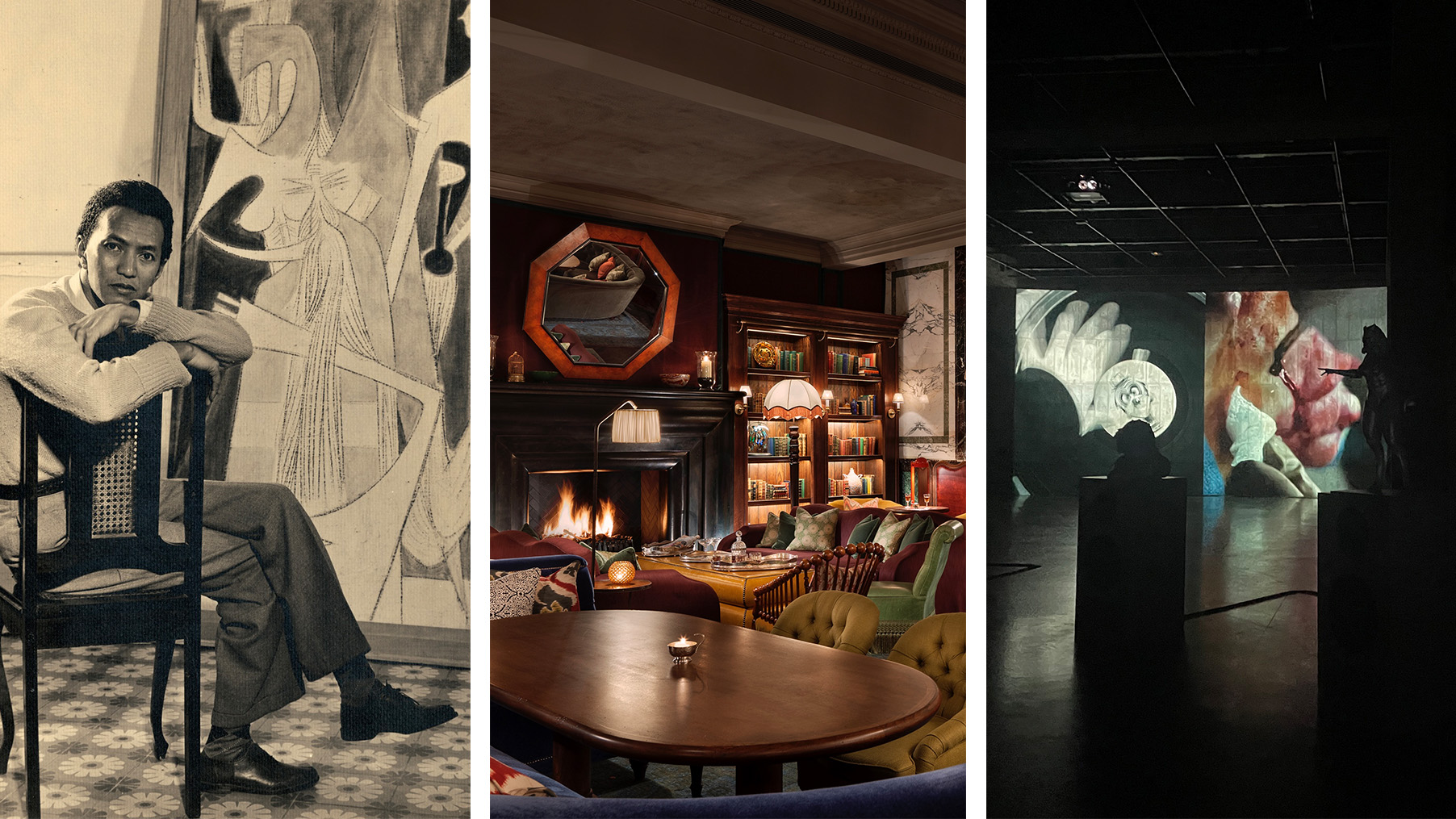 Out of office: the Wallpaper* editors’ picks of the week
Out of office: the Wallpaper* editors’ picks of the weekHere in the UK, summer seems to be fading fast. Moody skies and showers called for early-autumn rituals for the Wallpaper* team: retreating into the depths of the Tate Modern, slipping into shadowy cocktail bars, and curling up with a good book
-
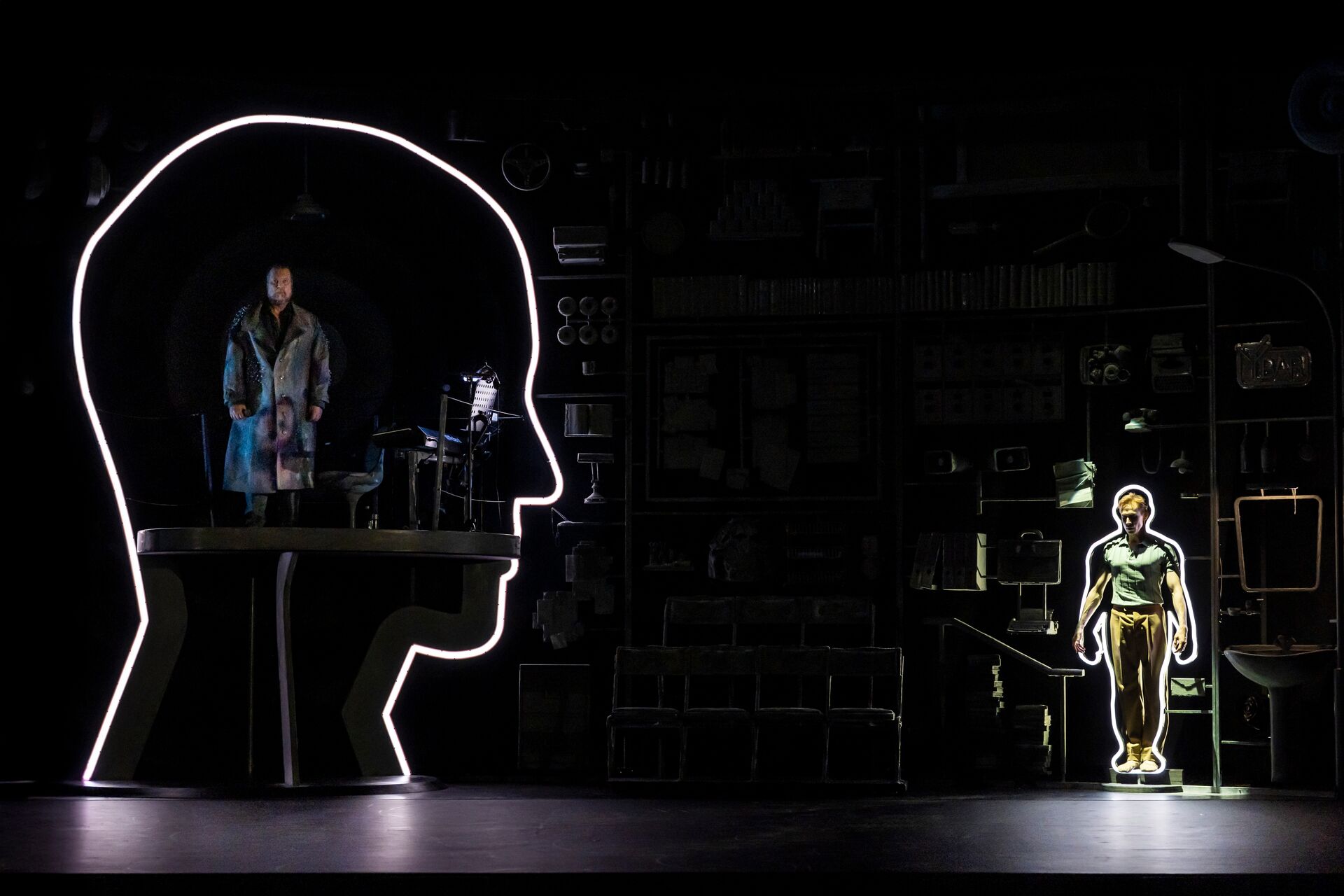 ‘A Single Man’ is now a ballet – we go behind the design
‘A Single Man’ is now a ballet – we go behind the designAs ‘A Single Man’ is presented by The Royal Ballet and Factory International in London, here’s how its set designer brought protagonist George’s inner and outer worlds to life on stage
-
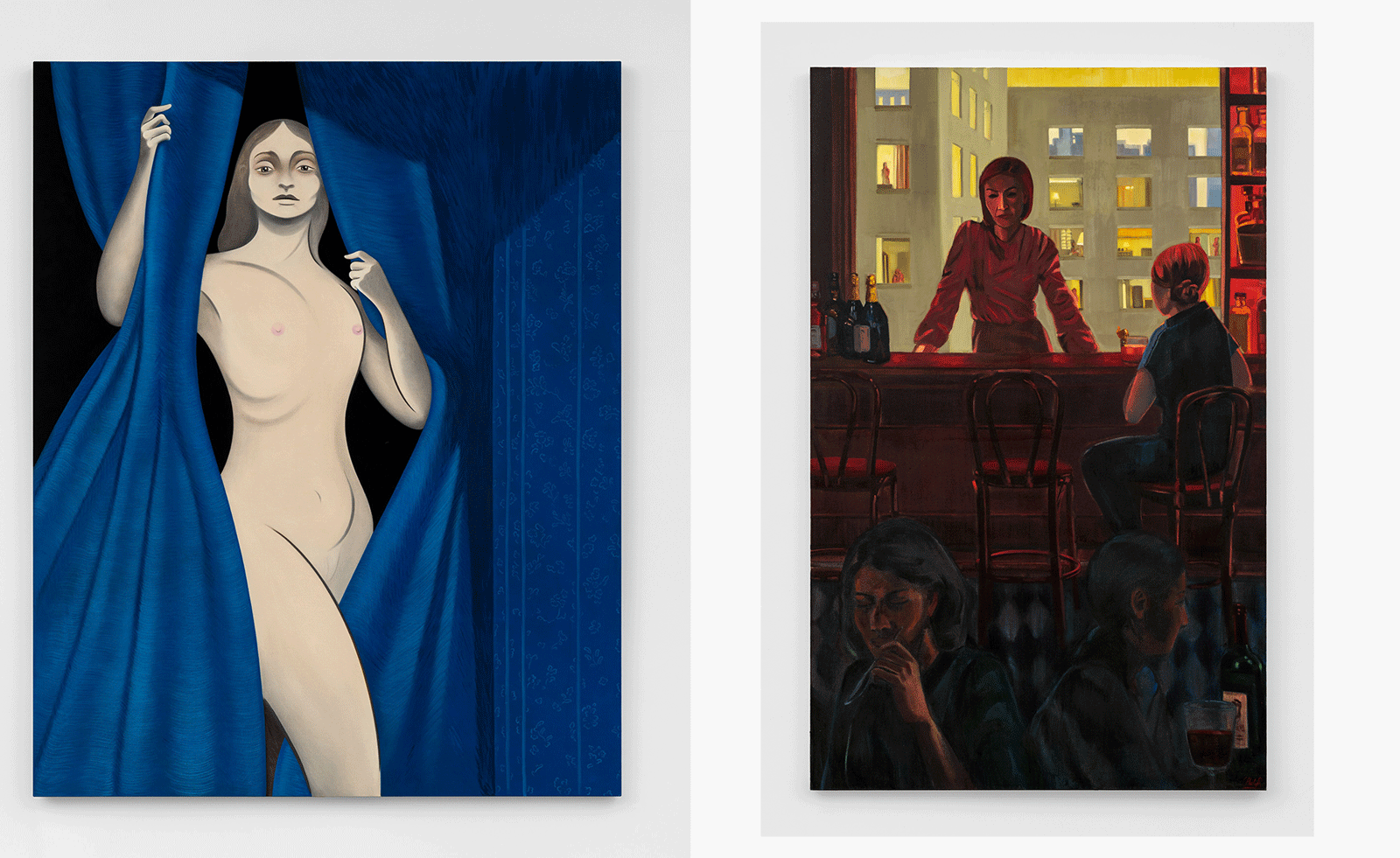 Artists imbue the domestic with an unsettling unfamiliarity at Hauser & Wirth
Artists imbue the domestic with an unsettling unfamiliarity at Hauser & WirthThree artists – Koak, Ding Shilun and Cece Philips – bring an uncanny subversion to the domestic environment in Hauser & Wirth’s London exhibition
-
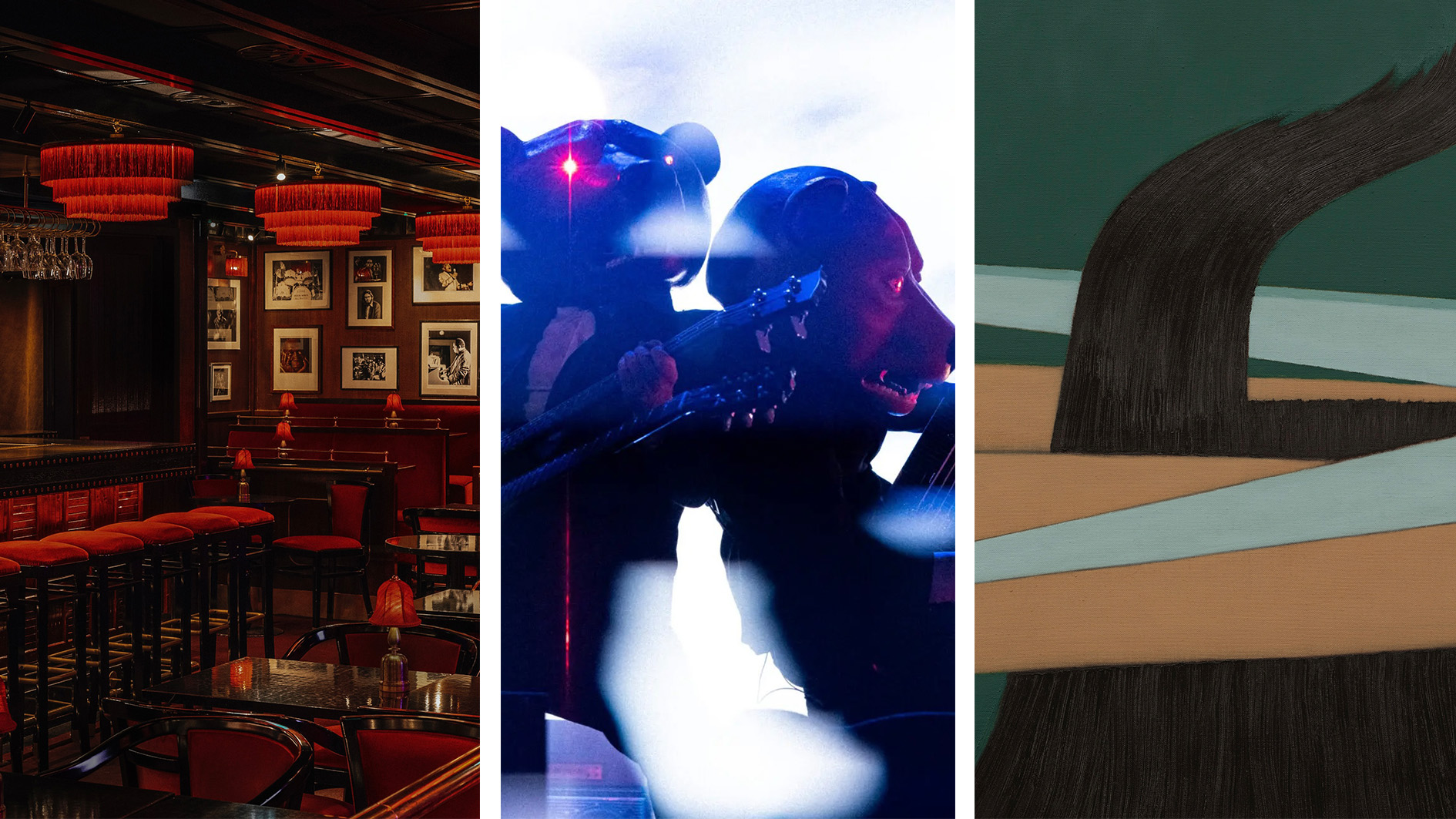 Out of office: the Wallpaper* editors’ picks of the week
Out of office: the Wallpaper* editors’ picks of the weekAnother week, another flurry of events, opening and excursions showcasing the best of culture and entertainment at home and abroad. Catch our editors at Scandi festivals, iconic jazz clubs, and running the length of Manhattan…